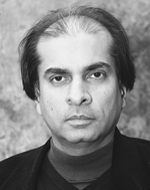Arguing Democracy: Intellectuals and Politics in Modern India
Lecture from 6 to 7:30pm (MCEAS, The Stephanie Grauman Wolf Room)
About the lecture
The emergence and consolidation of democracy in India – with all its imperfections and partialities – is one of the historical surprises of our era. It challenges understandings of India’s own history, as much as it challenges axioms of classical political theory. While we understand something of the workings of contemporary Indian democracy –its institutional format, its electoral forms – our sense of its intellectual foundations is less firm. The emergence of democracy in India was neither imperial gift nor recovery of lost treasure from India’s ancient past: its context was the struggle to solve practical problems, above all that of how to give representative political form to different kinds of difference. In this struggle, political intellectuals and their debates have played a role.
About the speaker
Sunil Khilnani is Starr Foundation Professor and Director, South Asia Studies at the Johns Hopkins University School of Advanced International Studies in Washington D.C. His publications include Arguing Revolution: The Intellectual Left in Postwar France (Yale, 1993), Civil Society: History and Possibilities (with Sudipta Kaviraj: Cambridge, 2001), and The Idea of India (3rd edition, Penguin, 2003) - which has just appeared in Arabic. He is at work on a study of Jawaharlal Nehru, and on a history of democracy in India.
Full text of lecture
Event Flyer

